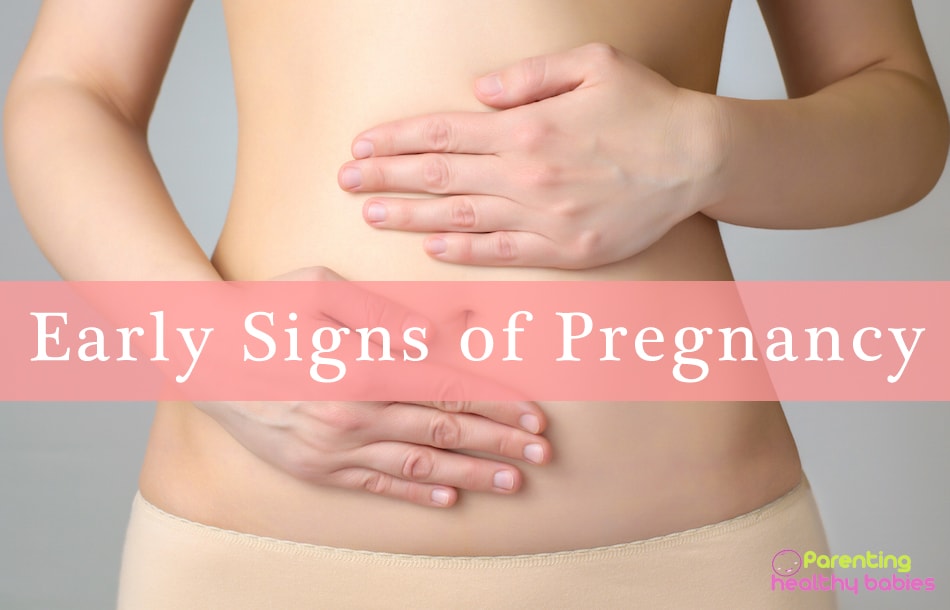What does the term “intrauterine pregnancy” mean? It occurs when a gestational sac forms sooner in the course of your pregnancy in your womb. One of two factors known to cause early intrauterine pregnancy is:
In reality, you are still very early in your pregnancy, and your embryo requires more time to develop and start beating. When the mother is unaware of the exact date of her conception, exhibits a history of irregular menstruation, or just discontinued using birth control, this usually occurs.
The growth of your unborn child and your pregnancy are not proceeding normally. This occurs yet again when the woman is unsure of the day she became pregnant and the fetus’ size is inconsistent with how big she thought she was when she was pregnant.
How To Recognize A Preterm Intrauterine Pregnancy?
A positive pregnancy test result is often used to diagnose intrauterine pregnancy. The presence of a gestational sac in your uterus is then verified with a transvaginal scan.
How To Manage A First-Trimester Intrauterine Pregnancy
A follow-up scan may be required if your doctor discovers that your estimated conception date doesn’t match the scan results. Depending on the size of your embryo or pregnancy sac, it is done again one to two weeks after your initial scan. This provides more time for development. The second scan should be capable of verifying the conception date and determining whether your pregnancy is progressing normally.
Once you’ve been told you have an early intrauterine pregnancy, talk with your doctor about your potential next steps.
What Results In A Failed Early Intrauterine Pregnancy?
Abnormal Chromosomes and Genes
Atypical genes, additional chromosomes, and consequent DNA sequence variations are among the major causes of miscarriages. This may result in the fetus’ incorrect or flawed growth while still within the mother. Such anomalies may not always have to run in families.
Such defects might manifest in the embryo during the early stages of pregnancy. This primarily occurs when the embryo is growing and dividing.
Serious chromosomal abnormalities may cause fetal mortality while still within the mother.
Here are a few possible reasons why an early intrauterine pregnancy could fail or end in miscarriage:
Abnormal Genes Or Chromosomes
Most miscarriages are caused by faulty fetal growth. Despite being an entirely random phenomenon, missing or extra chromosomes are thought to be responsible for about 50% of miscarriages. This develops during the division and growth of your embryo and is not inherited from either parent. Chromosomal anomalies may result in the following:
In-utero fetal death
In this case, the fetus would stop growing and pass away before any signs of pregnancy loss would show.
contaminated ovum
The embryo never starts to develop.
Pregnancy with molars (and incomplete molars)
The father is the source of the embryo’s two sets of chromosomes. The lack of (or partial) fetal development and aberrant placental tissues are further characteristics of a molar pregnancy. The mother’s chromosomes are still present in partial molar pregnancies, but the male still transmits two sets of chromosomes.
Inadequate or Compromised Maternal Health
Miscarriages that occur during intrauterine pregnancy might be brought on by a previous, unrecognized maternal health problem. These are some of the serious problems that might cause such miscarriages:
Diabetes
One of the biggest medical diseases that might cause problems during pregnancy is diabetes. Therefore, it is preferable to take the required precautions for gestational diabetes to avoid endangering your health or the health of your unborn child in the early stages of pregnancy.
Imbalances in Hormones
When pregnant intrauterinally, the uterus, and its condition are most important. However, hormonal problems, such as low levels of pregnancy hormones, can cause the uterine lining to shrink. This affects the uterus’s health and makes it challenging for the egg to implant. Additionally, it makes it challenging to understand how the embryo develops.
Serious Illnesses
certain illnesses, including
- Malaria
- CMV
- Listeriosis
- Toxoplasmosis
- HIV infection in Syphilis
- may cause issues if a pregnancy occurs intrauterine.
Age
Comparing women under the age of 35 to those over 35, the likelihood of miscarriage is 20% higher for women over 35. At age 40, this rises to 40%, and at age 45, it doubles once more to become an astounding 80%.
previously miscarried
As would be expected, women who have experienced two or more consecutive miscarriages are likewise more likely to experience another. It’s crucial to keep in mind, too, that previous miscarriages may not always preclude you from finally conceiving successfully.
Use of drugs, alcohol, and tobacco
Pregnancy-related risks for miscarriage and congenital abnormalities include smoking, excessive drinking, and drug use.
Weight
For mothers and kids, being overweight or underweight poses additional risks.
It’s a popular misperception that the actions listed below raise your risk of miscarrying the baby:
Sexual activity
A mucus plug and the amniotic fluid surround and protect your unborn child.
Exercise
If you’ve always been active, you can keep doing so as long as your doctor gives the go-ahead.
Continually working
Make sure to avoid any dangerous substances or environments.
Lowering The Risks Of A Failed Early Intrauterine Pregnancy
The following lifestyle factors should be taken into consideration in order to protect your health as well as the health of your unborn child:
- Consume a diet rich in fruits and vegetables and well-balanced.
- Steer clear of alcohol, drugs, and smoking.
- Before being pregnant, keep a healthy weight.
- Before getting pregnant, take care of any issues you’ve been made aware of, such as antiphospholipid syndrome (APS) or a fragile cervix.
When To Consult A Physician About An Intrauterine Pregnancy
As soon as a pregnancy test shows positive results, speak with your doctor about any potential medical conditions. Early intrauterine pregnancy failure is frequently accompanied by vaginal bleeding and spotting. If you do see this, please seek medical attention right away.
Suggestion
What is a pregnancy within the uterus? Only an ultrasound can accurately detect this complicated illness. A later screening usually confirms your doctor’s initial suspicions regarding an early intrauterine pregnancy. Always remember that the possibility of an unsuccessful intrauterine pregnancy is increased by specific maternal health issues, the presence of chromosomes or genes that are defective, or both.
References :
https://www.wjgnet.com/2218-6220/full/v4/i3/58.htm
https://www.mayoclinic.org/diseases-conditions/pregnancy-loss-miscarriage/symptoms-causes/syc-20354298
https://www.nhs.uk/conditions/miscarriage/prevention/













